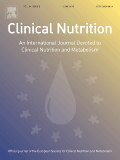
Lifestyle Genomics
Scope & Guideline
Transforming Health with Personalized Genomic Research
Introduction
Aims and Scopes
- Genetic and Nutritional Interactions:
Research exploring how genetic variations influence individual responses to dietary components and lifestyle factors, contributing to personalized nutrition strategies. - Microbiome and Health:
Investigations into the role of gut microbiota diversity and its impact on metabolic health, obesity, and other chronic diseases. - Metabolomics and Precision Nutrition:
Utilization of metabolomics to reveal the biochemical effects of dietary interventions and genetic predispositions, paving the way for tailored nutritional therapies. - Lifestyle Factors and Chronic Diseases:
Studies examining how lifestyle choices, such as diet and physical activity, interact with genetic risk factors to affect the development and progression of chronic diseases. - Gene-Environment Interactions:
Research assessing how environmental factors, including diet, physical activity, and socio-economic status, influence genetic predispositions to various health conditions.
Trending and Emerging
- Gut Microbiome Research:
Studies focusing on the relationship between gut microbial diversity and health outcomes, especially in the context of obesity and metabolic syndrome, are trending as researchers seek to understand how microbiota influence genetic predispositions. - Personalized Nutrition Interventions:
Increasing emphasis on tailored dietary strategies based on genetic profiles, with research exploring how individual genetic make-up affects responses to specific nutrients and dietary patterns. - Polygenic Risk Scores:
The use of polygenic risk scores to assess individual risk for obesity and other diseases is becoming more prominent, as researchers explore how these scores interact with lifestyle factors. - Nutrigenomics and Chronic Disease Prevention:
Research focusing on how nutrigenomic insights can inform prevention strategies for chronic diseases is on the rise, highlighting the relevance of personalized approaches to health. - Environmental and Lifestyle Influences on Genetics:
Increasing exploration of how lifestyle factors and environmental exposures modify genetic risks, emphasizing the importance of a holistic view of health.
Declining or Waning
- Traditional Nutritional Studies:
Research focusing solely on conventional dietary patterns without considering genetic factors is becoming less common, as the field of nutrigenomics emphasizes the importance of personalized nutrition. - General Population Studies:
Studies that do not account for genetic variability or lifestyle factors are declining, as more researchers recognize the need for precision and the integration of individual differences in health research. - Basic Genetic Research without Lifestyle Context:
Investigations into genetic polymorphisms without examining their interactions with lifestyle and environmental factors are less frequently published, as the journal's focus shifts towards integrative approaches.
Similar Journals

Obesity
Advancing the Dialogue on Obesity ResearchObesity is a premier academic journal published by WILEY, dedicated to advancing knowledge in the fields of endocrinology, nutrition, and metabolism. With an impressive impact factor and ranking in the top quartile across multiple categories, including Q1 in Endocrinology, Diabetes and Metabolism, and Nutrition and Dietetics, this journal serves as a critical resource for researchers, clinicians, and policymakers. The journal facilitates the dissemination of innovative research findings spanning the biological, behavioral, and societal factors associated with obesity, offering Open Access options to ensure broad visibility and accessibility to its content. With converged years from 2006 to 2024, Obesity provides an invaluable platform for cutting-edge studies that contribute to the global understanding of obesity and its multifaceted implications for health and wellness. Located in Hoboken, New Jersey, this esteemed journal plays a pivotal role in shaping the dialogue around obesity, making it an essential read for anyone invested in tackling this pressing public health challenge.

Current Nutrition Reports
Shaping the Future of Nutrition Through Scholarly Excellence.Current Nutrition Reports, published by SpringerNature, stands at the forefront of nutrition and food science research, providing an invaluable resource for researchers, professionals, and students alike. Since its establishment in 2012, the journal has gained recognition for its significant contributions to the field, achieving a prestigious Q1 ranking in both Food Science and Nutrition and Dietetics categories as of 2023. With an impact factor reflecting its critical position in the academic community, this journal is dedicated to disseminating high-quality reviews and reports that synthesize the latest findings on nutritional science, public health, and dietetics. Although it operates under a non-open access model, its extensive reach and influence in prominent databases like Scopus, where it ranks in the top percentiles, underscore its importance in shaping the future of nutrition research. As the journal anticipates converging years until 2024, it promises to remain a vital platform fostering scholarly dialogue and innovation in the dynamic realm of nutrition.

Nutrition Journal
Shaping Public Health through Evidence-Based Nutrition Research.Nutrition Journal is a prestigious open-access publication from BMC, dedicated to advancing the field of nutrition and dietetics since its inception in 2002. With an impressive impact factor and a notable Scopus ranking, it ranks in the top quartile (Q1) in both Medicine (miscellaneous) and Nutrition and Dietetics, highlighting its significant contribution to health sciences. Based in the United Kingdom, the journal covers a broad spectrum of topics, making it an essential resource for researchers, healthcare professionals, and students interested in nutrition's role in health and disease prevention. The journal not only facilitates the dissemination of groundbreaking research but also prioritizes accessibility, allowing global audiences to engage with vital findings that shape dietary practices and public health policies. With a commitment to interdisciplinary collaboration, Nutrition Journal fosters an environment where innovative ideas and evidence-based solutions can flourish, making it a cornerstone reference in the field.

Human Genomics
Elevating Genomic Research to New HeightsHuman Genomics, published by BMC, is a leading open-access journal dedicated to advancing the field of genomics and its applications in health and disease. Since its inception in 2003, the journal has provided a vital platform for researchers to disseminate groundbreaking findings related to genetic research, contributing significantly to areas such as Drug Discovery, Genetics, Molecular Biology, and Molecular Medicine, as reflected in its Q1 and Q2 quartile rankings throughout 2023. With an ISSN of 1473-9542 and an E-ISSN of 1479-7364, Human Genomics not only delivers high-quality, peer-reviewed research but also ensures accessibility to a broader audience, empowering professionals, students, and academics to stay at the forefront of genomic science. Through its rigorous editorial standards and impactful publications, the journal fosters a collaborative environment for innovative research across the globe from its base in the United Kingdom. By promoting open access since its launch, Human Genomics continues to enhance the visibility and impact of genetic studies, making it an essential resource for anyone involved in the rapidly evolving field of human genomics.

Food Science and Human Wellness
Exploring Innovations in Food and HealthFood Science and Human Wellness, published by TSINGHUA UNIVERSITY PRESS, is an esteemed open-access journal that has been at the forefront of advancing research in the interdisciplinary fields of food science and human health since its inception in 2012. With an impressive impact factor indicative of its quality and relevance, this journal holds a prestigious Q1 ranking in Food Science according to 2023 metrics, reflecting its commitment to high-caliber research and innovation. The journal is positioned within the top 12% of its category, ranked 46th out of 389 in Agricultural and Biological Sciences. The journal not only publishes original research articles but also critical reviews, perspectives, and innovations that contribute significantly to our understanding of the relationship between nutrition, wellness, and food science. With its Open Access model, Food Science and Human Wellness ensures that its valuable content is available to a global audience, fostering collaborative advancements in this vital field. Researchers, professionals, and students are invited to explore insightful discussions and impactful studies that aim to enhance public health and food safety.

EUROPEAN JOURNAL OF NUTRITION
Shaping the Future of Health through NutritionEuropean Journal of Nutrition, published by Springer Heidelberg, is a premier outlet for groundbreaking research in the field of nutrition and dietetics. Established in 1996 and set to continue its impactful legacy until at least 2024, this journal enjoys an impressive recognition, holding a Q1 category rank in both Medicine (miscellaneous) and Nutrition and Dietetics, with notable Scopus rankings that place it in the top 10% of its field. The journal facilitates open access options, enhancing the dissemination of knowledge across the globe. It serves as a vital platform for researchers, healthcare professionals, and students, promoting the exchange of innovative ideas and advancements in nutritional science that aim to improve health outcomes worldwide. With a commitment to quality and relevance, the European Journal of Nutrition continues to shape the future of nutrition research and practice.

Nutrition & Metabolism
Transforming Knowledge into Nutritional InsightNutrition & Metabolism, published by BMC, is a leading open-access journal that has been pivotal in advancing research within the domains of nutrition, metabolic science, and endocrinology since its inception in 2004. With an impressive impact in its field, this journal boasts classification in the Q1 category in both Nutrition and Dietetics and Medicine (miscellaneous), as well as Q2 in Endocrinology, Diabetes and Metabolism for 2023. It ranks in the top percentiles of its Scopus categories, highlighting its significance to the scholarly community, with notable placements such as rank 22 out of 140 in Nutrition and Dietetics. The journal's commitment to open access ensures that groundbreaking research is readily available to researchers, practitioners, and students alike, fostering collaboration and innovation across disciplines. Based in the United Kingdom, Nutrition & Metabolism continues to shape the future of nutritional science and metabolic studies, inviting submissions that address pivotal questions and drive the field forward.

CLINICAL NUTRITION
Shaping Dietary Practices for Critical Care ExcellenceCLINICAL NUTRITION, published by Churchill Livingstone, is a premier international journal dedicated to advancing the field of nutrition and dietetics, as well as critical care and intensive care medicine. Established in 1982, the journal has consistently delivered high-quality, peer-reviewed research, celebrated for its impact with an impressive Q1 ranking in both Critical Care and Intensive Care Medicine and Nutrition and Dietetics categories as of 2023. With its emphasis on collaborative discourse among researchers, clinicians, and educators, CLINICAL NUTRITION plays a crucial role in shaping dietary practices and interventions that enhance patient care and recovery. Although the journal does not provide open access, its rigorously curated content remains a vital resource for professionals seeking to implement evidence-based nutrition strategies in clinical settings. The journal is situated in the United States, with operations based out of Edinburgh, Scotland. Researchers are encouraged to engage with this influential publication to stay abreast of the latest findings and innovations within these intersecting fields.

Nutrition and Metabolic Insights
Transforming research into practical health solutions.Nutrition and Metabolic Insights is a distinguished open-access journal published by SAGE Publications Ltd, dedicated to advancing the fields of nutrition, metabolic processes, and dietary sciences. Since its inception in 2008, this journal has carved a niche for itself within the academic community, offering a platform for rigorous research and innovative findings. With a focus on multidisciplinary approaches, it publishes articles that explore vital aspects of Endocrinology, Diabetes and Metabolism, Food Science, and Nutrition and Dietetics, earning recognition with a 2023 Q2 ranking in Food Science and Q3 rankings in other critical categories. Researchers and professionals can access cutting-edge research that not only contributes to academic discourse but also informs clinical practice and public health discussions. By facilitating the dissemination of knowledge, Nutrition and Metabolic Insights plays a crucial role in improving health outcomes worldwide, making it an essential resource for students, researchers, and health professionals alike.

Genome Medicine
Fostering Collaboration for Genomic BreakthroughsGenome Medicine is a prestigious, peer-reviewed journal published by BMC, focusing on the rapidly evolving fields of genetics, molecular biology, and molecular medicine. Established in 2009 and boasting an open-access format, it has become a leading platform for disseminating high-quality research findings that advance our understanding of genetic diseases and therapeutic innovations. With an impressive Q1 ranking across multiple relevant categories—in particular, genetics (clinical), molecular biology, and molecular medicine—this journal is recognized for its substantial impact in the academic community, as evidenced by its exceptional placement in Scopus rankings. By providing unrestricted access to groundbreaking studies, Genome Medicine fosters collaboration and knowledge sharing among researchers, clinicians, and educators, thus playing a vital role in the transition from fundamental genetic research to clinical applications. Researchers are encouraged to contribute their findings and insights, further solidifying the journal’s position as a pivotal resource for those dedicated to advancing genomic medicine.